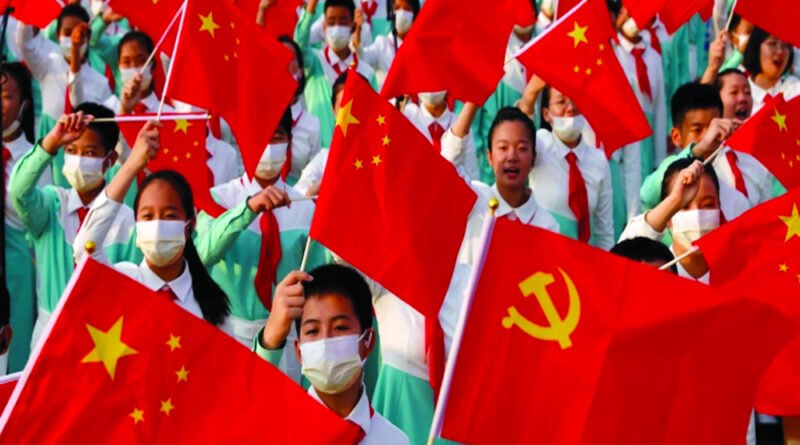The CPC’s centenary: How’s the road ahead?
As a nation, the Chinese place a great deal of stress on the efficacy of force and violence. But that’s because they’ve been brought up like that
Irrespective of how Sino-Indian relations are, one wishes the Communist Party of China (CPC) many happy returns of the day on its centenary birthday. Ironically, the CPC’s continuing life benefits India. The CPC owns its country’s army, like the Congress employs the Seva Dal. That Army last fought a war in 1979. The CPC has huge share holdings in many large corporations; for example, it has its grip on Jack Ma’s Alibaba. Yet, in its centenary celebrations, the Party and its president-for-life — we may more appropriately call him Emperor Xi Jinping —betray some nervousness. In the very first session of the centenary celebrations, Xi warned that “foreign powers will have their heads bashed if they try to bully China”. Hardly a confident messaging of a country that desires to be the world’s numero uno. Why this nervousness?
With development and prosperity, the class profile of the people will change. As citizens become richer and more aware, they will want to have their say. Dictatorship will not be tolerated forever; power has to be shared with the people. Therefore, the CPC has itself become a large investor. No one is a bigger businessperson in China than the CPC. If there is any rebellion, the People’s Liberation Army (PLA) cannot be a part of it because it is employed by the Party.
The Tiananmen Square episode in 1989 was a severe lesson. The PLA had mown down thousands of young men and women. Singapore’s then Prime Minister, who watched the events on television, wrote: “It was unbelievable.” The PLA had turned its guns on its own people. Tanks and armoured personnel carriers stormed into the streets leading to the Square to shoot dead protestors who had raised the voice against corruption, nepotism and inflation and demanded political reform.
In his autobiography, Singapore’s architect Lee Kwan Yew pointed out four great challenges in China’s future; demand for more active participation in the affairs of the State — Tiananmen was a warning — more tensions as income differences widened, between people, between the prosperous coastal and riverine provinces and the poorer inland ones, as well as between Han China, Mongolia, Tibet and the Uygurs.
With more economic modernisation, there may well be a breakdown in the banking system and large-scale unemployment following reform of State enterprises — if the CPC ever allows it. Corruption is a pernicious disease, although it may not seem obvious today. The biggest challenge will be to adjust to the shift from a controlled or planned economy to a market one; also from a communist society to a free one. The Chinese rulers have been aware that this evolution could cause serious dislocations and even end the CPC’s rule, possibly setting off disintegrative forces. Therefore, the party has to own the Army.
Internationally, China will have to adjust with other countries which have different values and moral standards. The Chinese people have never been very religious. As a wag told us in Hong Kong, “We are not like you Indians. We are Buddhists at breakfast, Confucians at lunch and Taoists at dinner. We are very different from you Hindus and Muslims.” This difference is probably the reason why the Chinese appear to be deceptive, from the smallest questions to the biggest issues. They do not really realise that they have surprised and upset others. The loud signs that they have antagonised most nations of the world are noticeable today, particularly after the devastation of COVID-19. The Chinese probably expect to push through with their economic muscle. But economic glitter cannot exist in an isolated space.
Morality and ethics are sophisticated expressions but without the fear of punishment, they are likely to be hollow. Be it the fear of society, law or God, or for example the Hindu fear that his dushkarma (bad deeds) will result in durbhagya (ill fate). To an extent, Indian Muslims and Christians, at least some of them, also believe in karma. This is perhaps a throwback to the period when their forefathers were Hindus. But when none of these factors operate, most individuals are likely to indulge in selfish actions without any inhibition. Scholars of ethics do sometimes talk of conscience as an important factor. That may be, but for comparatively fewer persons. The Hindu faith depends so much on karma that in Hindi and many Indian languages there is no precise word for conscience. There is one in Urdu, namely, zameer. I wonder if there is any equivalent in the Chinese language.
In short, the Chinese obey the law when they must; that’s all. Other than that, the question of right and wrong, the issue of moral and immoral does not arise for an average Chinese. When a Chinese, whether individually or collectively, resorts to anything unethical, it is because he is innocent about morality. Their food habits too are reflective of this; over the ages, they have been eating just about every bird or animal they can lay their hands on. To sum it up, the Yellow Kingdom’s people place a great deal of stress on the efficacy of force and violence. In his concluding advice to the party, the late Mao Zedong asserted that “power flows from the barrel of a gun”.
(The writer is a well-known columnist, an author and a former member of the Rajya Sabha. The views expressed are personal.)
Source: The Pioneer




